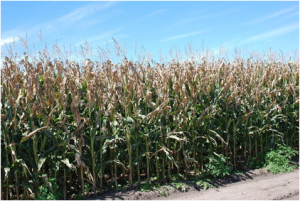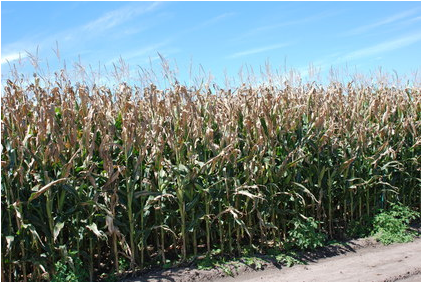
Cover crop cereal rye has been getting some “bad press” over the past month. It has been suggested that there is a connection with cover crop rye and Goss’s Wilt in corn (cereal rye making the Goss’s Wilt disease worse in corn).
I have talked to a few agronomists who had never heard of cover crop rye being a host for Goss’s Wilt, so I did my normal Google search to see what I could find out.
Some corn hybrids ARE susceptible to Goss’s Wilt. Some have greater levels of resistance. Here is a publication from The University of Nebraska that shows the severity of Goss’s Wilt. This disease is a real problem in the Corn Belt and there are many frustrated farmers that have Goss’s Wilt on their corn.
I also discovered that cereal rye is more of a deterrent to Goss’s Wilt, rather than a “cause.” By using cereal grains in between corn crops the Goss’s Wilt bacterium population is greatly reduced. Cereal rye is actually an excellent choice for a cover crop to help reduce the risk of Goss’s Wilt.
To reduce Goss’s Wilt it would be wise to consider the following steps:
- use resistant corn hybrids
- use a cover crop between continuous corn crops
- control foxtail, barnyardgrass, shattercane, and other known hosts
- rotate to soybeans, dry beans, alfalfa, small grains, or other non-host crops
For an excellent article on this topic by Sarah Carlson at Practical Farmers of Iowa, click here. You can reach Sarah at sarah@practicalfarmers.org
